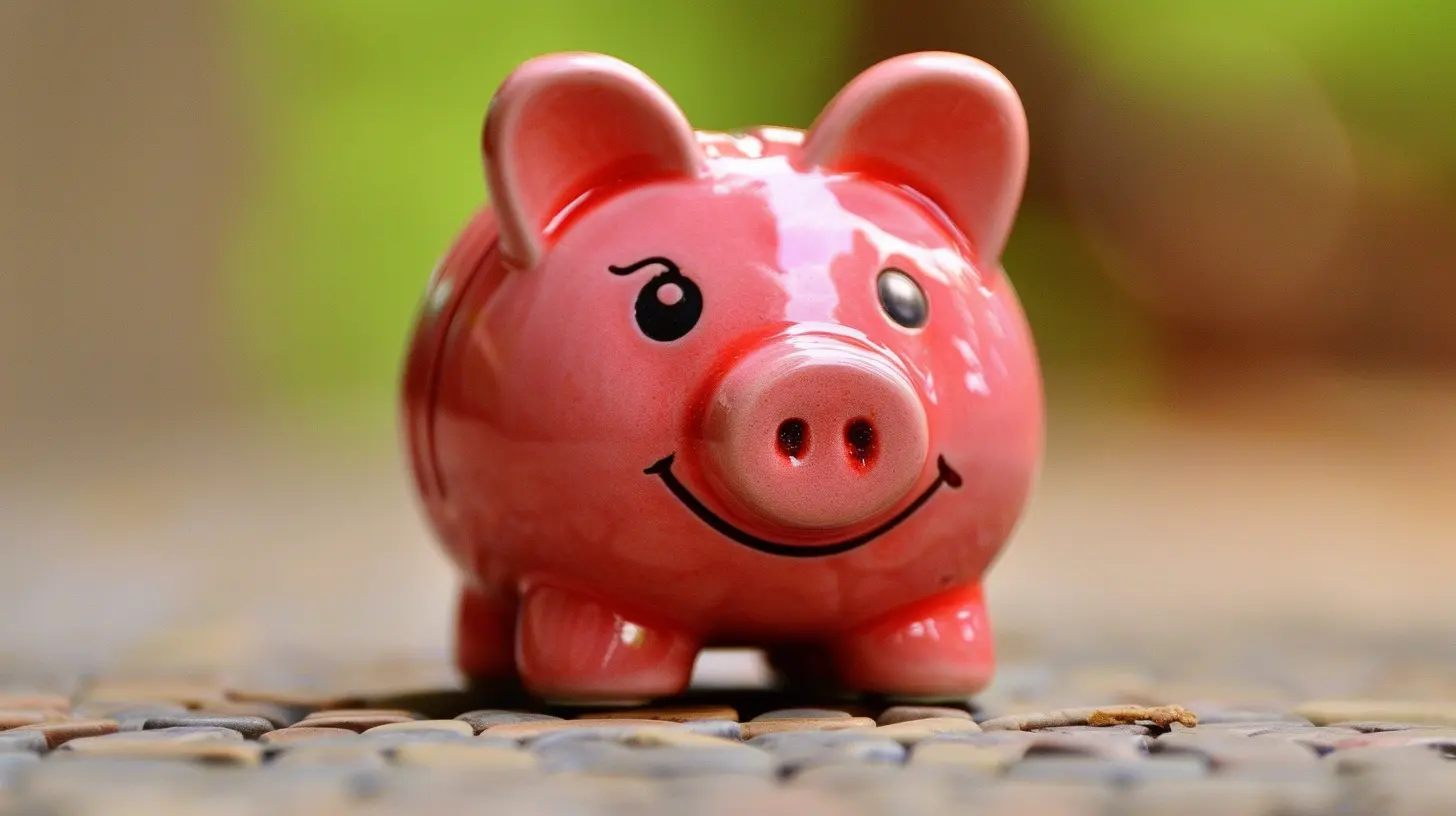Financial Goals You Should Set in Your 30s
27 November 2025
Your 30s can feel like a strange mix of freedom and pressure. You've probably outgrown the chaos of your 20s, but you're still navigating what it means to be financially stable and future-ready. Whether you're single, married, starting a family, climbing the career ladder, or building your dream business, this decade lays the financial groundwork for the rest of your life.
Now’s the time to get serious.
Let’s be honest—financial planning can feel overwhelming. But good news? It doesn’t have to be. Setting bite-sized, achievable financial goals can put you on a steady track toward long-term wealth, peace of mind, and maybe even that TikTok-worthy dream home. Stick with me, and let’s walk through the most important financial goals to set in your 30s.
1. Get Rid of High-Interest Debt
Let’s rip the Band-Aid off—if you're still juggling credit card debt or old personal loans with crazy interest rates, it's time to tackle them.High-interest debt grows fast—like, snowball-in-a-blizzard fast. And the longer you carry it, the more money you’re just throwing into the financial void. Paying off these debts should be your top priority.
Tips to Tackle Debt:
- Use the avalanche method (paying off highest interest first) or the snowball method (smallest balance first).- Consider a balance transfer card or debt consolidation loan.
- Tighten your monthly budget and redirect those extra dollars straight to your debt.
Why start here? Because every dollar you’re paying in interest is one less dollar working for you. Let’s fix that.
2. Build an Emergency Fund (Yes, Really)
Life throws curveballs—job loss, car repairs, unexpected vet bills (pets are family, after all). Without an emergency fund, you’re just one expense away from a financial setback.Goal: Save 3–6 months’ worth of expenses
Put this money in a high-yield savings account. Don’t touch it unless it’s a real emergency. Think of it like a financial cushion that catches you when life makes you trip.Start small if you have to. Even stashing $50 a week can snowball into something solid over time.
3. Max Out Your Retirement Accounts
Retirement feels forever away in your 30s, right? But here's the truth bomb: this is actually the best time to invest for it.Why? One word—compound interest. It’s like planting a tree in your 30s that gives shade and fruit in your 60s. The earlier you start, the bigger that tree grows.
Where to Start:
- Max out your 401(k), especially if your employer matches contributions. That's free money!- Open an IRA (Traditional or Roth, based on your income).
- Consider an HSA if you qualify—it’s a stealthy triple-tax-advantaged retirement tool.
Even if you can't max it out right away, the key is to be consistent.
4. Get Serious About Budgeting
Budgeting isn’t about restriction—it’s about control. Think of it like GPS for your money. You wouldn’t start a road trip without directions, right?By your 30s, you should have a solid budget that:
- Tracks your income and expenses
- Allocates money toward savings, debts, and investing
- Leaves room for fun—yes, you can still have date nights and travel!
Apps like Mint, YNAB (You Need A Budget), or even a simple spreadsheet can do wonders. The point is to know where your money’s going—and be the one telling it where to go.
5. Start Investing Beyond Retirement
Retirement accounts are great, but let’s level up.In your 30s, it's time to build wealth beyond just stashing away for later. That means investing in taxable brokerage accounts to grow your money.
Why Invest Outside Retirement?
- More accessible than 401(k) or IRA cash- Helps you hit medium-term goals like buying a home or starting a business
- Builds wealth over time
Start with index funds or ETFs. They’re low-cost, diversified, and beginner-friendly. Over time, you can branch into real estate, crypto (if you're into that), or dividend stocks.
Remember: You don’t need to be a Wall Street whiz. You just need to start.
6. Protect Yourself With the Right Insurance
No one likes talking about insurance—but not having it? That’s a risk you can’t afford.Here’s what to be thinking about:
- Health insurance (obviously)
- Term life insurance if someone depends on your income
- Disability insurance in case you can’t work due to illness or injury
- Renter’s or homeowner’s insurance to protect your stuff
- Auto insurance—not just the minimum
Think of insurance like a financial seatbelt. You hope you never need it, but when you do, it can save you from disaster.
7. Improve Your Credit Score
Your credit score is like your financial reputation. A good one opens doors—a house, a car, even better job opportunities (yep, some employers check!).In your 30s, your credit score should be a priority. Aim for 750 and above to qualify for the best interest rates and terms.
Quick Credit Boost Tips:
- Always pay bills on time- Keep credit card balances under 30% of your limit
- Don't open or close too many accounts at once
- Check your credit report for errors (free at annualcreditreport.com)
This might not sound sexy, but trust me, future-you will thank you.
8. Save for Big Life Goals
Maybe you want to buy a home. Start a family. Travel the world. Launch a side hustle. Your 30s are prime time to think beyond just surviving—it's about designing the life you want.Create separate savings buckets for each goal. That way, you won’t mix your vacation fund with your down payment.
Life goals you might be saving for:
- House down payment- Wedding or honeymoon
- Baby fund
- Career shift or passion project
- Sabbatical
- Dream travel
Use high-yield or goal-based savings accounts to keep things organized and exciting. Trust me, watching those balances grow is addictive in the best way.
9. Start Estate Planning (Yes, Even You)
Look, I get it. You're not trying to be morbid. But planning ahead isn’t just for the elderly or ultra-rich.Estate planning can be as simple as:
- Writing a will
- Naming beneficiaries on financial accounts
- Setting up a medical power of attorney
- Assigning a trusted person for financial decisions if you’re ever unable
It’s peace of mind for you—and kindness for the people you love. Simple as that.
10. Increase Your Income
Now here’s a fun one: grow your earning potential.In your 30s, you're probably more experienced and skilled than you were a decade ago. So don’t settle. Evaluate your job, your salary, your side hustles. Are you making what you're worth?
Ways to Boost Your Income:
- Ask for a raise (you deserve it!)- Learn high-paying skills (coding, digital marketing, design, etc.)
- Start a freelance gig or small business
- Invest in productivity tools or coaching
The goal here isn’t to work yourself to the bone. It’s to unlock opportunities that move the needle.
11. Give Back (Even If It’s Small)
It might not seem "financial," but giving is a powerful part of a healthy money mindset.Whether it's donating to causes you care about, tithing, or just helping a friend in need, giving reminds us that money is a tool—not a goal in itself.
You don’t have to be rich to give. Set a small monthly amount, automate it, and know you’re doing good.
12. Reassess Your Financial Goals Regularly
Here’s the thing about your 30s: life changes fast. Careers shift. Babies are born. Relationships grow. Priorities evolve.Make it a habit to check in on your goals at least once a year:
- What’s changed?
- What’s working?
- What needs adjusting?
This isn’t a one-and-done list. It’s a living, breathing roadmap. And you’re in the driver’s seat.
Final Thoughts: Your 30s Matter More Than You Think
If your 20s were about learning (and maybe a few financial mistakes along the way), your 30s are about building. This is your decade to lay the foundation—to create habits, structures, and systems that will support you for decades to come.Don’t be discouraged if you’re starting late, or you’ve still got debt. That’s normal. The key is to start. Small steps turn into big change.
Remember, money isn’t about hoarding wealth or chasing every dollar. It’s about freedom. It’s about choice. And it’s about peace of mind.
So take a deep breath, pick one goal, and start today. You’ve got this.
all images in this post were generated using AI tools
Category:
Financial PlanningAuthor:

Knight Barrett
Discussion
rate this article
1 comments
Faelith Clark
Setting clear financial goals in your 30s is crucial. Focus on building an emergency fund, paying off debt, saving for retirement, and investing wisely. These steps lay a strong foundation for future financial stability.
December 1, 2025 at 5:27 AM

Knight Barrett
Absolutely! Setting clear financial goals in your 30s is essential for long-term stability. Prioritizing an emergency fund, debt repayment, retirement savings, and smart investments sets you on the right path.


